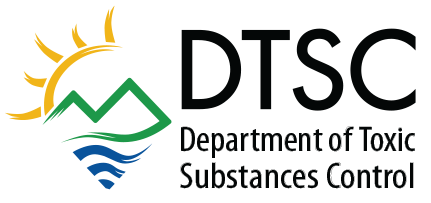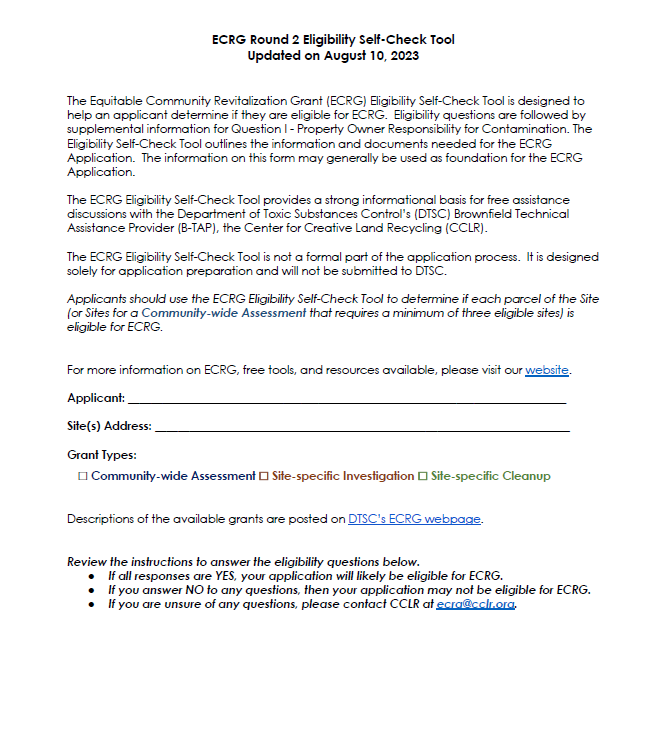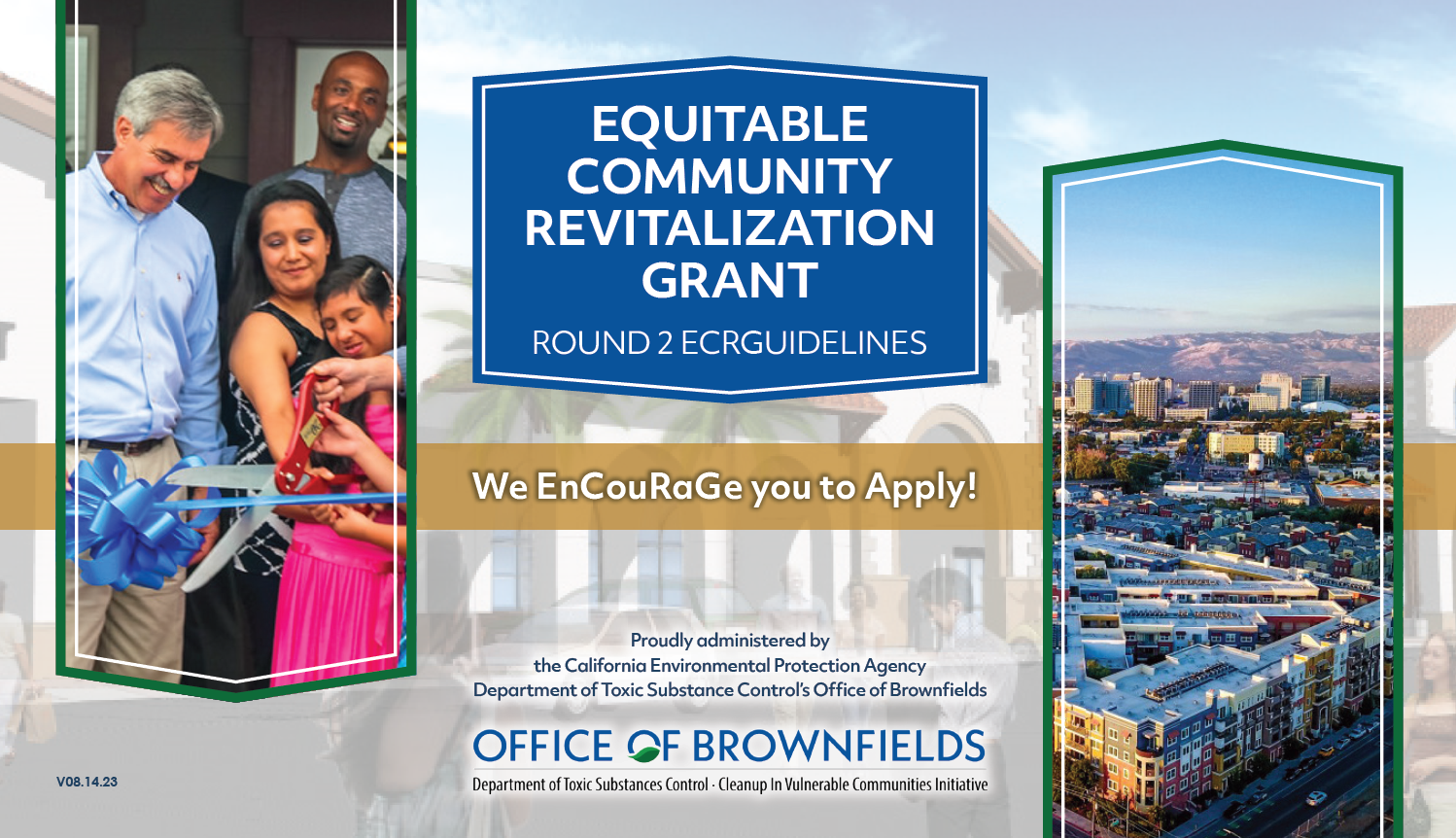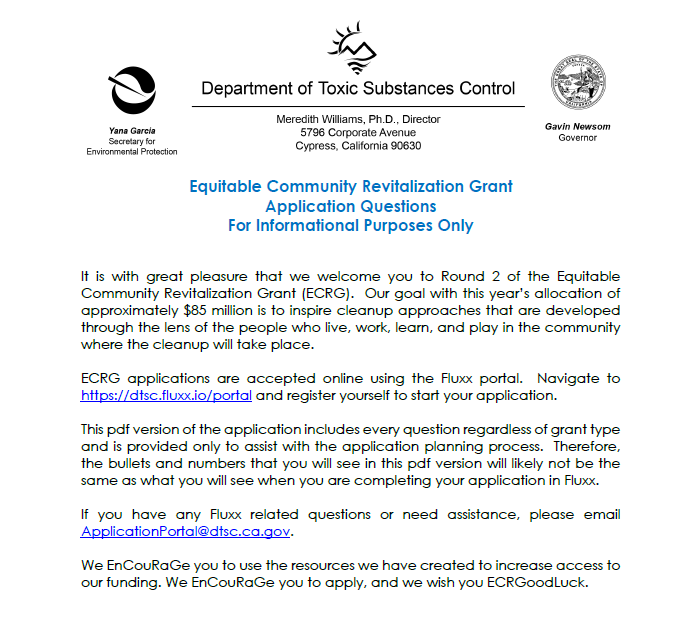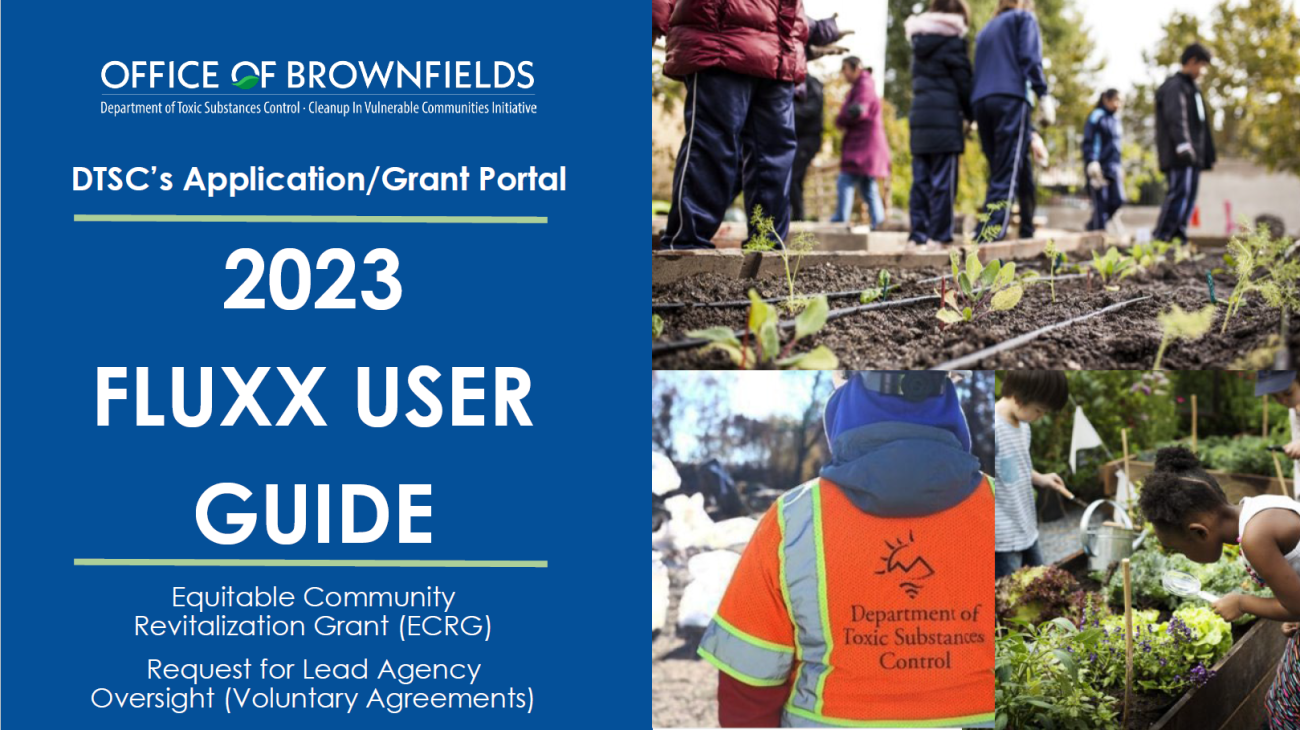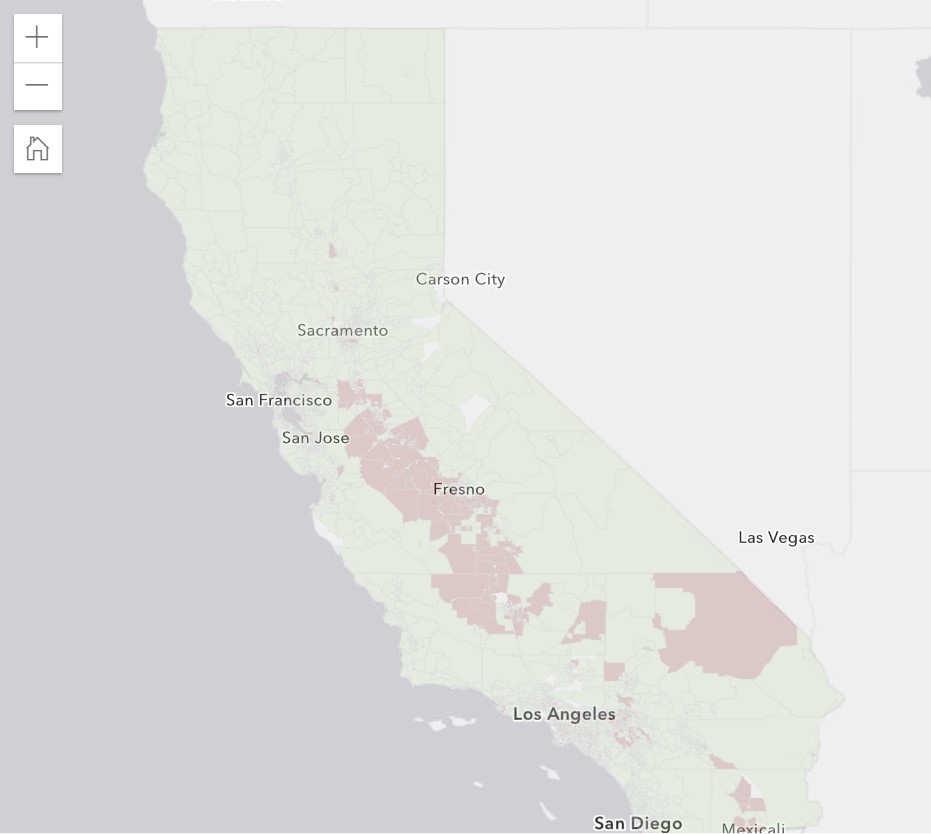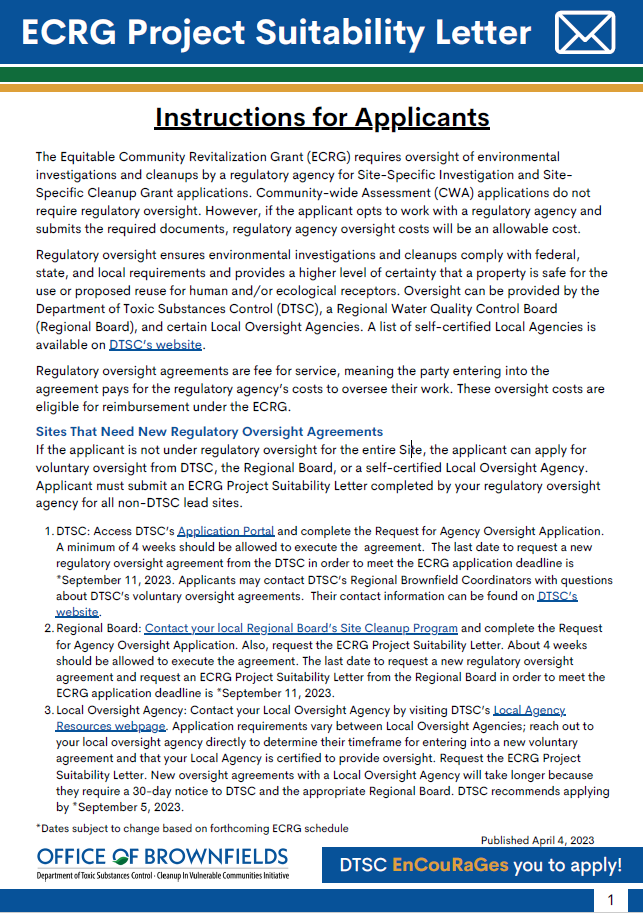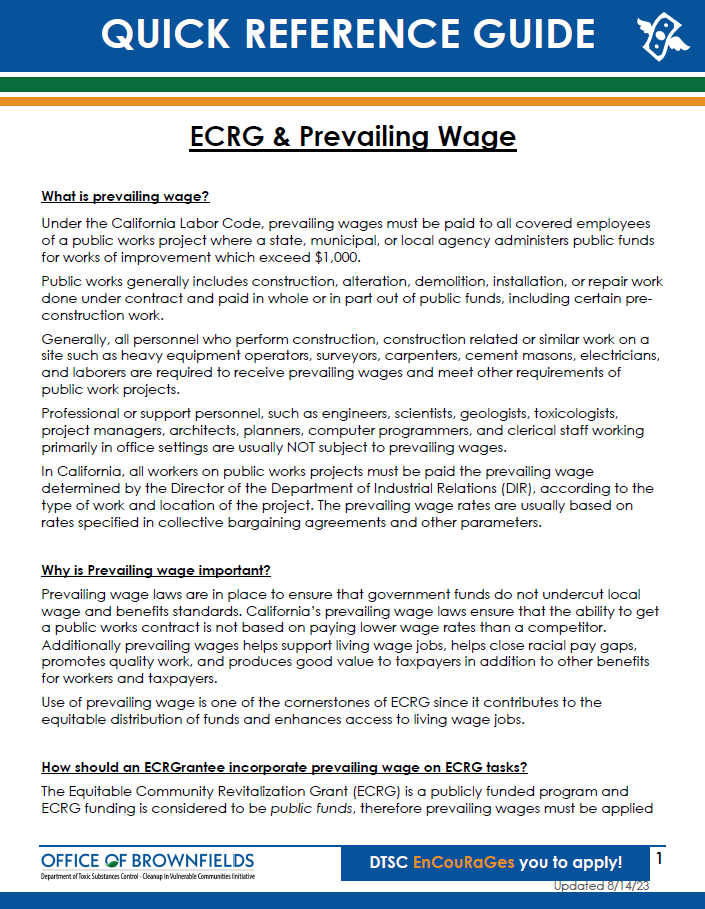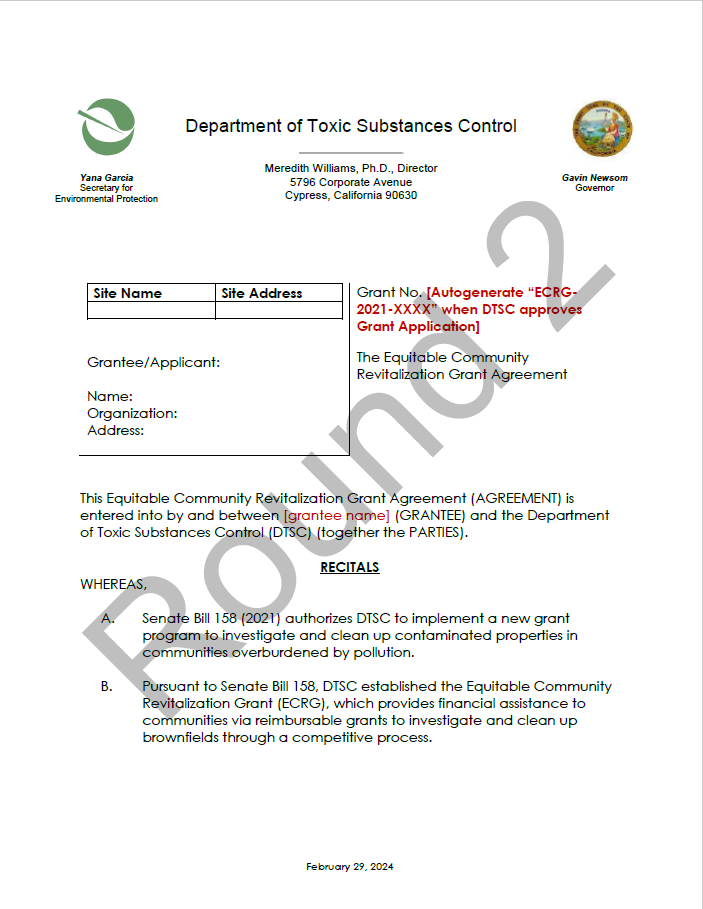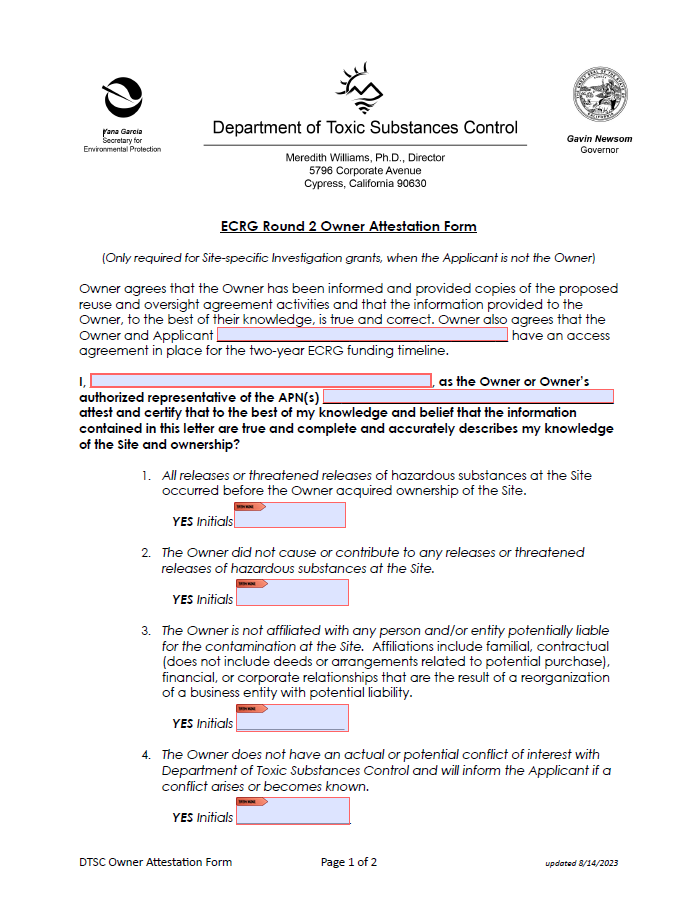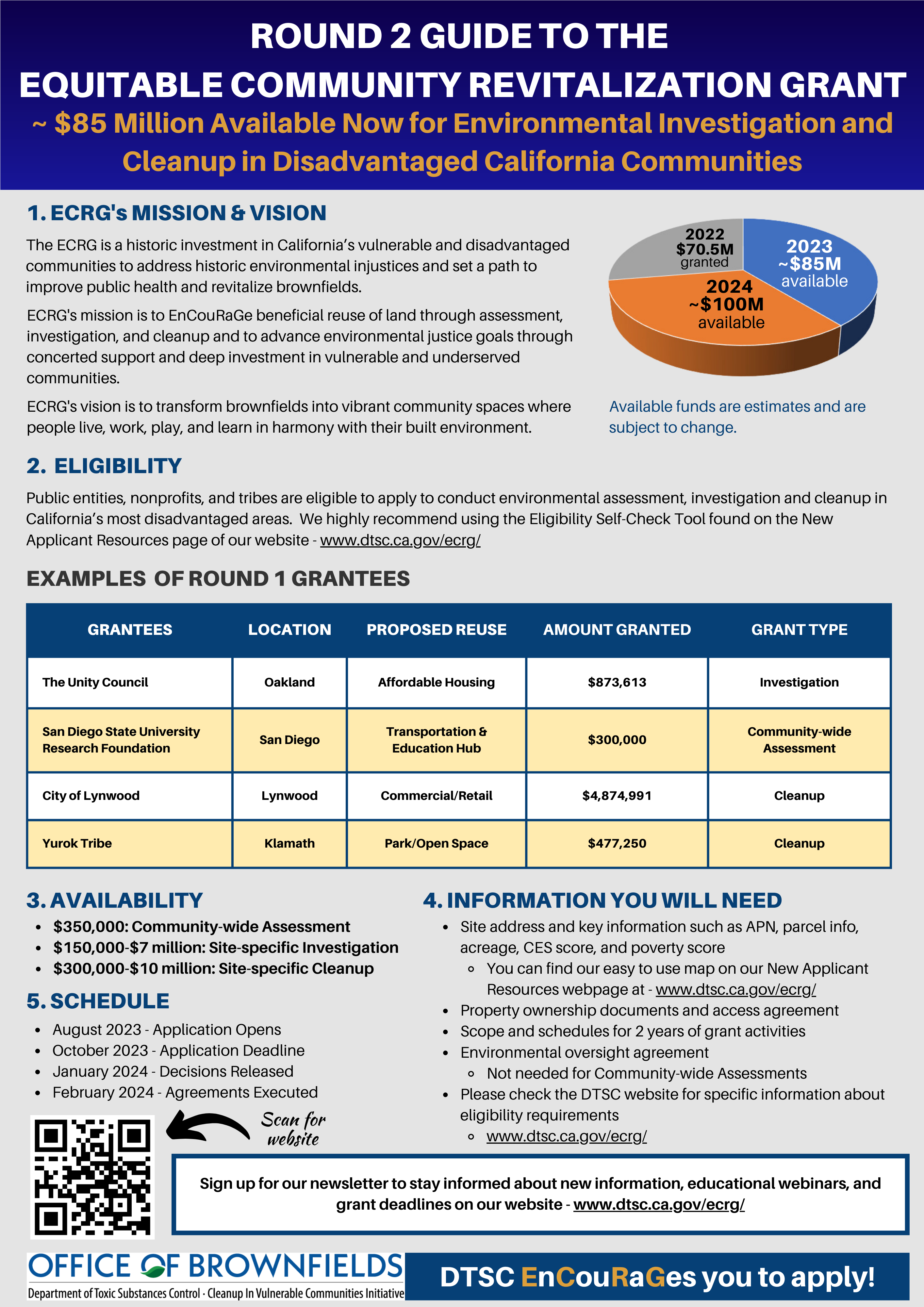ECRG New Applicant Resources
Latest News
Last Updated: March 1, 2024
Application Decisions Out Now!
We are thrilled to announce that DTSC’s Office of Brownfields has approved over $41 million in funding for the second round of the Equitable Community Revitalization Grant (ECRG). ECRG serves as a crucial catalyst for expediting the investigation, cleanup and beneficial reuse of contaminated brownfields in California’s historically vulnerable and disadvantaged communities.
While celebrating this milestone, we acknowledge that our journey is only the beginning, and there is much more work to be done as we endeavor to advance environmental justice across California. With the invaluable support of our Brownfields Technical Assistance Provider, the nonprofit Center for Creative Land Recycling (CCLR), DTSC’s Office of Brownfields is actively promoting ECRG throughout the state. ECRG’s Round 2 outreach included in person “ECRGatherings” in Fresno and Fontana. We hosted ECRGenius webinars to share the draft guidelines and held a comment period to encourage state-wide participation. We met with nonprofits, cities, counties, Tribes, community groups, and land trusts throughout the state as part of our ECRGrowing campaign. The feedback that we collected led to enhancement of the guidelines, which we shared in an open letter to all our stakeholders, ECRG ECRGathering & ECRGrowing Feedback Report and Call to Action for Round 3.
Once the Round 2 application was released, we met with potential applicants to help them with their brownfield journeys. We were grateful to have connected with 230 entities, representing 37 of California’s 58 counties. Our next goal is to engage with communities in all 58 counties. In subsequent rounds, our focus will continue to be on communities burdened with heavy environmental challenges, as indicated by high CalEnviroScreen scores. This includes densely populated urban centers, as well as regions in the far north, central and rural areas of our state. We are dedicated to fostering broader geographic participation in ECRG and will continue our state-wide engagement between grant cycles.
In the coming weeks, we will showcase some of the inspiring projects that will greatly benefit from the environmental investigation and cleanup that ECRG funding provides. We encourage stakeholders to visit the ECRG website for updates and to join us in this transformative journey towards safe and protective community revitalization.
Sign up for our ECRG Newsletter to stay up to date on upcoming webinars and events.
ECRGenius Webinars (click to open)
| Title | Links | Description |
|---|---|---|
| ECRGenius Webinar #1: Round 2 Overview | Recording | An introduction to ECRG Round 2. You’ll get a sneak-peek at the new guidelines which are going to be released on August 14 2023. The session will have a particular emphasis on eligibility, application requirements, funding allocations, the ECRG ethos, and how ECRG aims to advance environmental justice goals. |
| ECRGenius Webinar #2: Eligibility, Ownership and Access | Recording | A demystification of the ECRG Eligibility Self-Check Tool, CERCLA Liability defense, the All Appropriate Inquiry process, and site access requirements and documentation. The session will present real-life scenarios to demonstrate the application of these requirements. |
| ECRGenius Webinar #3: Engagement and Reuse | Recording | A synopsis of the ECRG engagement approach, community benefit commitments, equitable reuse, and contract requirements. The session will convey how vital it is to involve the community in cleanup and reuse for successful and equitable outcomes of ECRG projects. We are pleased to welcome the University of California at Berkeley’s Othering and Belonging Institute as a special guest for this ECRGenius webinar. |
| ECRGenius Webinar #4: FLUXX and Application Walkthrough | Recording | For the last and ultimate ECRGenius webinar, the major questions of the ECRG application directly on the Fluxx application portal. Join us for this one-time, step-by-step rundown and get pointers for successful application completion. |
ECRG Resources Round 2
Eligibility Self-Check Tool
Updated September 13, 2023
ECRGuidelines
Appendix G Amended 8-28-2023
Page 75 Amended 9-20-2023
If you opened this document before 9-20-2023, clear your cache and then download this document.
Fluxx User Guide
Round 2 Guide Now Available
(9-12-2023)
FAQs
A full description of the Eligibility Criteria is available in the Eligibility Self-Check Tool and in Section 2 of the ECRGuidelines.1. What is the Equitable Community Revitalization Grant?
2. Who can apply and can I submit more than one application?
3. How do I apply for ECRG?
4. Can you apply for both a US EPA Brownfields Grant and a DTSC ECRG? Can an entity with an existing US EPA Brownfields Grant apply for a DTSC ECRG?
5. What are the terms of the grant?
6. Do I need to notify the community or have public meetings prior to applying? Should the community engagement be for the cleanup or the reuse of the site?
7. How are costs reimbursed?
8. Will subcontractor markup be allowed when applying for reimbursement?
9. Is there a specific amount of funding available for each grant type and/or geographic regions?
10. If I receive a grant, will the entire project be covered by prevailing wage requirements?
11. What are eligible activities?
12. ECRG requires cleanup to levels that do not require land use restrictions or operation and maintenance of a remedy if the property is proposed for a reuse such as housing, hospitals, day care centers or similar type uses. Does the cleanup have to be achieved this within the two-year grant term?
13. Is petroleum considered to be a hazardous substance under ECRG?
14. Can current ECRGrantees average the total amount of reimbursements requested across all their Round 1 ECRGrants to meet the 70% reimbursement requirement?
15. Are there additional clarifications for current ECRGrantees who are seeking waivers to apply for ECRG Round 2?

Fluxx
Application Portal

